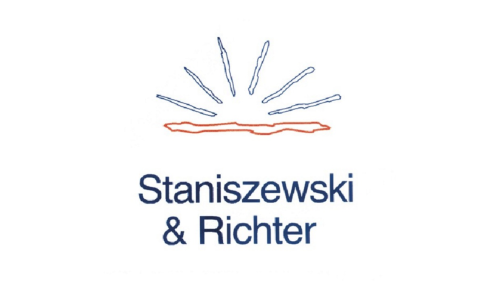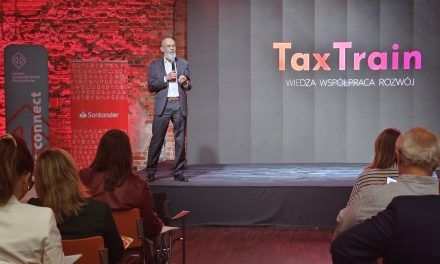
By Marzena Richter, Staniszewski & Richter

The economy like any business must seek out ‘game-changers’ in order to get ahead of the game – we function in a highly competitive business environment. CEOs running businesses know that strategic action made at the right time and place may change the course of their companies’ future significantly, and most importantly, profitably. At the level of the economy, those game-changers must provide incentives and opportunity to the widest possible section of businesses and individuals. Interest rates, inflation, exchange rates, stock exchange indices, commodity rates, GDP growth rates, unemployment rates, are important economic and financial indicators which must be regularly referenced and managed for making timely decisions.
In the classic operating-cost disclosure in Poland, nearly all businesses report expenditure on energy, services and payroll. These are some of the critical areas for game-changers to make Poland more competitive.
Energy
At the recent European Economic Congress in Katowice one of the most significant themes for panel discussions was energy diversification. We are all familiar with photovoltaic panels, heat pumps and wind farms. Complementing these more unstable sources of energy is the development of nuclear energy sources through small modular reactors, which will be a more stable source. Liquid gas and increased capacity of LNG terminals safeguard the gas supply. Electricity still comes from more traditional sources like coal but this will eventually be phased out.
Poland has restructured its energy and power companies and formed an energy conglomerate, Orlen, which can compete on the world stage. In 2021 Orlen signed a cooperation agreement with Poland’s wealthiest businessman, Michal Sołowow who was a client of my firm in the 1990s and then a budding capitalist in property development, construction, grocery and DIY supermarkets. In April 2023 Orlen and Sołowow Synthos Green Energy announced the plans to go forward with the nuclear project having secured US development finance with support from Polish banks as well. Cheap and stable nuclear energy will certainly be a game-changer for the Polish economy.
Services
At the heart of the Polish economy are SMEs. This is where talent is nurtured because as most entrepreneurs know, nothing gives them more satisfaction than turning their interests and skills into commercial rewards. Technology start ups tempted by incentives such as the IP box and the strengthening of intellectual property rights are a typical example of the Polish individualist approach to business.
However, at the other end of the scale are the global corporates conquering Poland with their business service centres. SMEs may be bursting with talent, but corporates have the resources like R&D and development finance.
One of the most prominent sectors is AI and technology, both in SMEs and service centres. In fact in the business services sector which currently employs around 400,000 employees, is expected to grow by a further 10%. IT specialists account for 45% of business services operations in Poland which explains the never-ending demand for them, according to a recent ABSL report.
A recent example of technology corporates is the recently announced green-field investment by INTEL.
A policy of attracting tech businesses to Poland, together with income tax policies which are designed to retain good quality employees, is crucial to Poland’s success.
Tax collection
One of the most important game-changers in the Polish fiscal system has been the introduction of the standard audit file for tax (SAF-T) more commonly known by its Polish equivalent, the JPK file. I recall events organised by the BPCC before the implementation of this technology, for example in 2016, in which a representative of the Portuguese Ministry of Finance and a leading accounting software provider presented the overall concept of the system. The initial problem was to address the VAT gap – a gaping hole in the budget losing millions in taxes, as revenue evaporated due to VAT carousels which effectively extracted VAT on the basis of false documents out of the system.
As Portugal had already experienced the SAF-T which proved to be a huge success and this too has now been the experience of Poland so much so, that the country has doubled its budget due to consistent growth (bar the pandemic) and massively increased control over the computation and control collection of taxes.
All areas are being reformed, including the personal income tax declaration and the JPK corporate income tax (implementation in 2024 delayed by over a year) together with the e-invoice platform also to become operational in mid-2024.
This whole digital eco-system of financial, accounting and tax documentation will soon consist of the e-building blocks: e-invoices, e-VAT, e-PIT, e-CIT and e-financial statements with the digital power to identify all individual transactions thus making it easier for the tax office to conduct analytics and on this basis select taxpayers for investigation. Over a relatively short time frame, the Polish tax office has become digitally more sophisticated or at the least equal to the some of the most digitally advanced corporates they serve. In fact the UK has only just started to consider the SAF-T system to improve tax collection according to the ICAEW’s journal Economia (the UK chartered accountants’ magazine).
The swarm of e-data that the tax office now absorbs, effectively whole accounting systems and once JPK CIT is introduced in 2024 thiswill makes Polish tax institutions a highly desirable environment for AI.
Poland, a low taxation regime?
Reform of the personal tax system
In 2022 a long awaited reform of the Polish tax system was delivered by the Ministry of Finance. Like any major change it did not take place without significant implementation problems and legislative blunders, never the less, mid-year the desired effect was finally achieved!
For personal taxes a more generous tax-free allowance of 30,000 złotys a year was introduced with the first band for taxation set at 120,000 złotys, which is four times the tax free personal allowance. Over 120,000 złotys, the taxpayer is subject to a rate of 32%. At the same time, the basic tax rate was reduced from 17 % to 12%.
In 2021 the tax-free allowance was 8,000 złotys a year, with the basic rate set at 17% up to 85,528 złotys, with the higher rate set at 32%.
The average salary in Poland in 2022 was between 6,000 to 7,000 złotys a month (so 72,000 to 84,000 złotys a year). Therefore the majority of low-paid employees benefit from the tax reform.
The minimum wage in Poland in 2022 was 3,000 złotys a month (36,000 złotys a year), meaning the lowest paid pay very little tax. People on average salaries and up to 150% of the average are the main beneficiaries of the tax reform in terms of tax bands and tax rates. Other reforms introduced include a young person’s tax free exemption up to the age of 26 and up to 85,000 złotys a year. More recently, working seniors (aged 60-67) with full pension rights but who have not drawn their pension have similar tax exemptions. What is important is that at the young end of the payroll, graduates are encouraged to enter the workforce as soon as possible. I know of an International Relations graduate who completes a Bachelor’s degree in Warsaw at the end of June and is joining a prestigious American financial institution the following month. Three years ago, the same student was considering going to the UK to study and was hoping to work abroad! Good jobs with global corporates and personal development prospects are available in Poland with tax incentives to stay in the country. Attitudes like this fuel the massive growth of the international corporate sector in Poland.
Comparison with the UK
Using the UK as a benchmark, has Poland managed to eventually start competing with the EU and the UK for employees on a fiscal basis?
For the current tax year in the UK 2023/24 the bands and rates are as follows: the tax-free personal allowance is £12,570 a year. The basic rate tax is 20% in the band £12,571-£50,270 (or four times the tax free personal allowance). The higher rate of 40 % applies to the band £50,271 to £125,140 with an additional high rate of 45% over the top band.
For the previous tax year in the UK 2022/23 the bands and rates were as follows: the free personal allowance was £12,570 a year. The basic rate tax was in the band £12,571-£37,700 (or three times the tax free personal allowance). The higher rate of 40% applied to the band £37,701 to £15,000 with an additional high rate of 45% over the top band.
The average annual salary in the UK in 2022 was between £30,000 to £40,000 depending on age, industry and location.
The minimum wage in the UK around £9.50 to £10/hour depending on the number of hours worked, so fifty 40-hour weeks gives £20,000 a year.
What is worth noting is that Poland has systematically been increasing the minimum wage, and thus closing the gap with the average wage. The UK minimum wage of £20,000 a year results in an effective tax rate of 7.4% whereas the Polish minimum wage results in an effective tax of 2%, and the Polish average wage gives an effective tax of 7.7%. And if you take an average for UK earnings of £35,000 a year, this results in an effective tax rate of 12.8%. Therefore in terms of effective tax rates, Poland has lower taxation than in the UK.
In the UK the tax burden is higher both on the minimum wage earners and average wage earners, but hammers middle-class professionals with a 40% tax rate.
In Poland professionals and specialists working in IT and finance for international corporates are paid globally competitive rates which means they have been paid a premium to the average wage.
Social insurance (Poland) vs National Insurance contributions (UK)
Social insurance is really a hidden payroll tax for both employee and employer. An average Polish employee must part with just over 21% of gross income on social insurance, the employer must pay over a similar amount. All in all, Poland has one of the highest rates of social insurance in Europe. In the UK social insurance costs are much lower with average earners paying 12% of salary and employers a similar amount. Nevertheless Poland has started to increase benefits and pensions to stimulate consumer spending.
Comparison of corporate tax rates UK and Poland
Currently in the UK the mainstream corporate taxation rate is 25% and the small companies’ rate is 19%. In Poland the small companies’ rate is 9% for earnings up to €2 million euro and the mainstream rate is 19%, which is the small companies’ rate in the UK! These competitive rates may encourage more foreign companies to register groups and holdings in Poland, therefore transfering more activity.
All in all a set of game-changers that make Poland more competitive! The Polish economy continues to remain robust with a strong rebound post-pandemic in GDP growth rate at around 4.9% for 2022. This continuous growth rate is what attracts Western capital to Poland where businesses can seek advantageous returns. Unemployment, currently at 2.7% by the Eurostat measure is the lowest in the EU (with Czechia). Inflation is still high but is showing a downwards trend to the current 13%. Since the start of the full-scale Russian invasion of Ukraine, the number of Ukrainians in Poland has increased by some 1.9 million, thus expanding the workforce. So it is not difficult to conclude that Poland is an economic leader for the region.


























